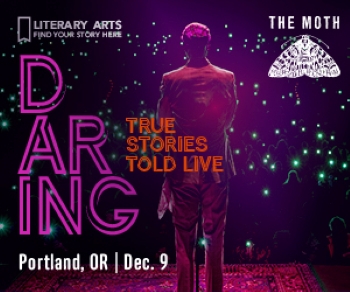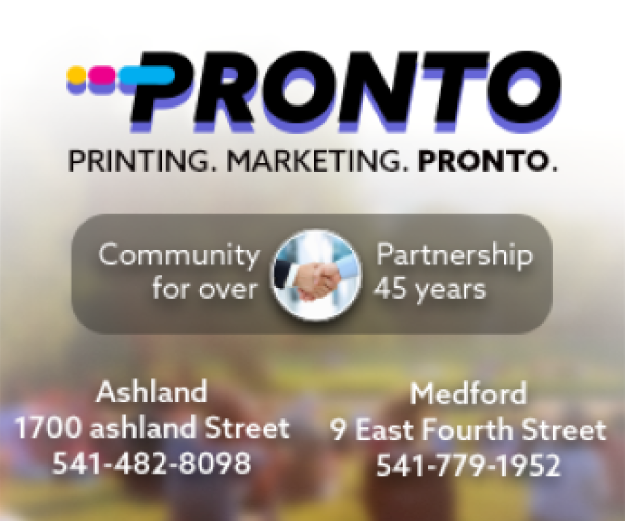Barbara Hilyer’s book ‘Legacy Lost: Passing Along the Color Line’ tells of learning secrets about her heritage that had never been shared with her
By Debora Gordon for Ashland,news
Barbara Hilyer grew up in the suburbs of Seattle, living in Washington until leaving high school and moving to Eugene, Oregon, at the age of 17, in 1972. She later attended Southern Oregon University, majoring in elementary education. It was 10 years after her father’s death, when she was 33 years old, that she first learned the family secret that she had African American heritage through her father’s side of the family.
After she learned of her family history and the concept of “passing,” she began to research her family’s past. She ultimately wrote a book about her experience, “Legacy Lost: Passing Along the Color Line.” She will discuss the book at 7 p.m. Monday, March 4, at Bloomsbury Books in Ashland.
Hilyer was a teacher in Ashland for 22 years, working at Walker Elementary, Ashland Middle School and Ashland High. She was among a group of three teachers who started the annual Martin Luther King Jr. Day program at the Historic Ashland Armory in 1988, a tradition that continues to this day and is always attended by hundreds of people.

“I totally identify as the life I’ve lived. I still identify as the way I grew up. I have never checked a box asking for my racial identity ever. Even before I knew that I wasn’t all white, I never checked a box. It never seemed right to me to ask what people were. I still don’t check the boxes. Not white, particularly, either. I identify as human.”
After her parents were divorced, Hilyer said, “My dad was very much in my life. I saw him all the time and stayed with him in the summer. I wasn’t estranged from my dad. I don’t think I ever made any assumption on race. I don’t think I ever made any judgment that he was anything other than my dad,” She said he never discussed his race with her.
Regarding issues of race throughout American history, Hilyer said, “I guess I’m stunned by how poorly educated people are — and the failure of our ability to teach American history in a way that would have people understand why we’re at this place.”
Considering that race has long been an issue in the United States, Hilyer’s book examines the lives and contributions of her family going back six generations.
“Race has always been here,” she said. “I would say it’s never gone away and we have short attention spans in America.
“In my research in finding out about my family members, I came to find my great-grandfather, Andrew Hilyer, was a very prolific writer and speaker in Washington, D.C., in the late 1800s and early 1900s. I went to Howard University and found his papers and one of his quotes — because he wrote a number of articles about prejudice, such as ‘An Analysis of Color Prejudice and How to Suppress It’ — noting that ‘there will from time to time be sharp revivals of color prejudice.’
“That’s what I would say when people say, ‘What about this moment?’ This is just one more moment, and we like to think that this is really the big moment because we live in it, but this is just what our journey is. … (T)here have been other big moments in our racial history and time will tell whether this moment makes fundamental changes or not.”
The deets
Barbara Hilyer will discuss her book “Legacy Lost: Passing Along the Color Line.”
When: 7 p.m. Monday, March 4
Where: Bloomsbury Books, 290 E. Main St., Ashland
and
When: 3 p.m. Sunday, March 3
Where: Village Books, 2382 W. Main St., Medford
Her own thinking regarding race has not changed.
“I’ve been very self-confident, and I’ve never identified heavily as anything particular. Finding the diversity and the accomplishment of Black people in my extended ancestral heritage was much more about opening up to all the richness of who people were and what they did. It was much more about the journey, of the education. Which is why I say that I wrote it more as a memoir and a history rather than any change in my life. It made my life richer. I was able to connect with my Black cousins and visit people and have people talk to me and be able to be very open about race when talking across racial lines. It’s just been a privilege that has opened a lot of doors, but I wouldn’t say it was earth-shattering in any way for me because I’ve always been kind of a rugged individualist.”
The book publishes Feb. 20, 2024, some 10 years after she started writing it.
“I self-published; I have an editor and publishing manager. I want to say that I purposely want to sell this in independent bookstores, I purposely do not want people to buy it on Amazon. It’s listed on Amazon because it has to be. I am vehemently against it, and I want people to support local bookstores and Bloomsbury Books. I’m doing the book talk there.
“I specifically want to do that because it fits my teaching style. I like small groups of people who can learn together. And I want people to get better control of the kind of community that we make, and vote with their dollars and support local businesses.”
Writing the book led Hilyer to the realization “that people are defined by the times in which they live, and we are too quick to judge people’s lives in other times. This experience … hasn’t changed my life at all. It’s just made it richer. I hope that everyone would have the opportunity to see the full richness of human beings across any racial line, any religion, any line.”
Among the relatives Hilyer has found is Ralph Bunche, whom she describes as “a mediator and real founding father of the U.N.”
She cited a statement attributed to Bunche in which he said: “I have a deep-rooted bias against hate and intolerance. I have a bias against racial and religious bigotry, a bias that leads me to believe in the essential goodness of my fellow man.”
Hilyer said, “I love that quote. I think when we talk about bias, let’s have a bias against hate and intolerance.
“I want to be sure that people see this story really isn’t about me. It’s about what I found in the Black history element that’s not told in American history. I haven’t really changed who I am, I just have a new and different story to tell that is rich.” I don’t want people to come to the book talk thinking that I’m now a Black person who’s telling you something.”
Hilyer does not describe herself as a writer.
“I was just living this story, and to live it was wonderful,” said said. “I had the privilege of doing research that I think is very interesting in the American history realm. It’s a story about the contemporary American race difficulty that we’re in. I don’t think of myself as an author, I think of myself as a teacher with a good story.”
Debora Gordon is a writer, artist, educator and nonviolence activist who recently moved to Ashland from Oakland, California. Email her at [email protected].
Feb. 20: Publication date corrected, selected quotes edited for clarification.






















